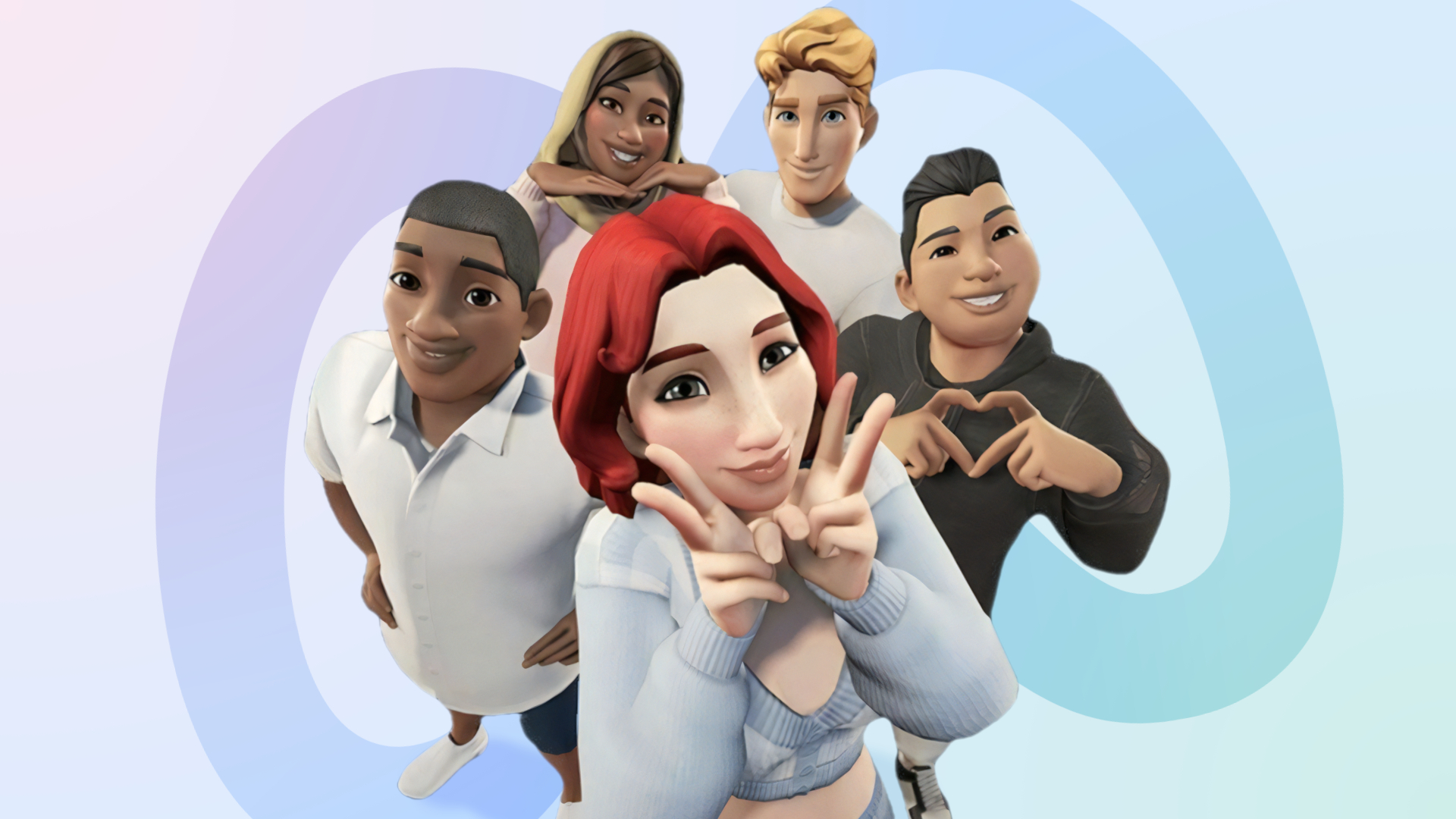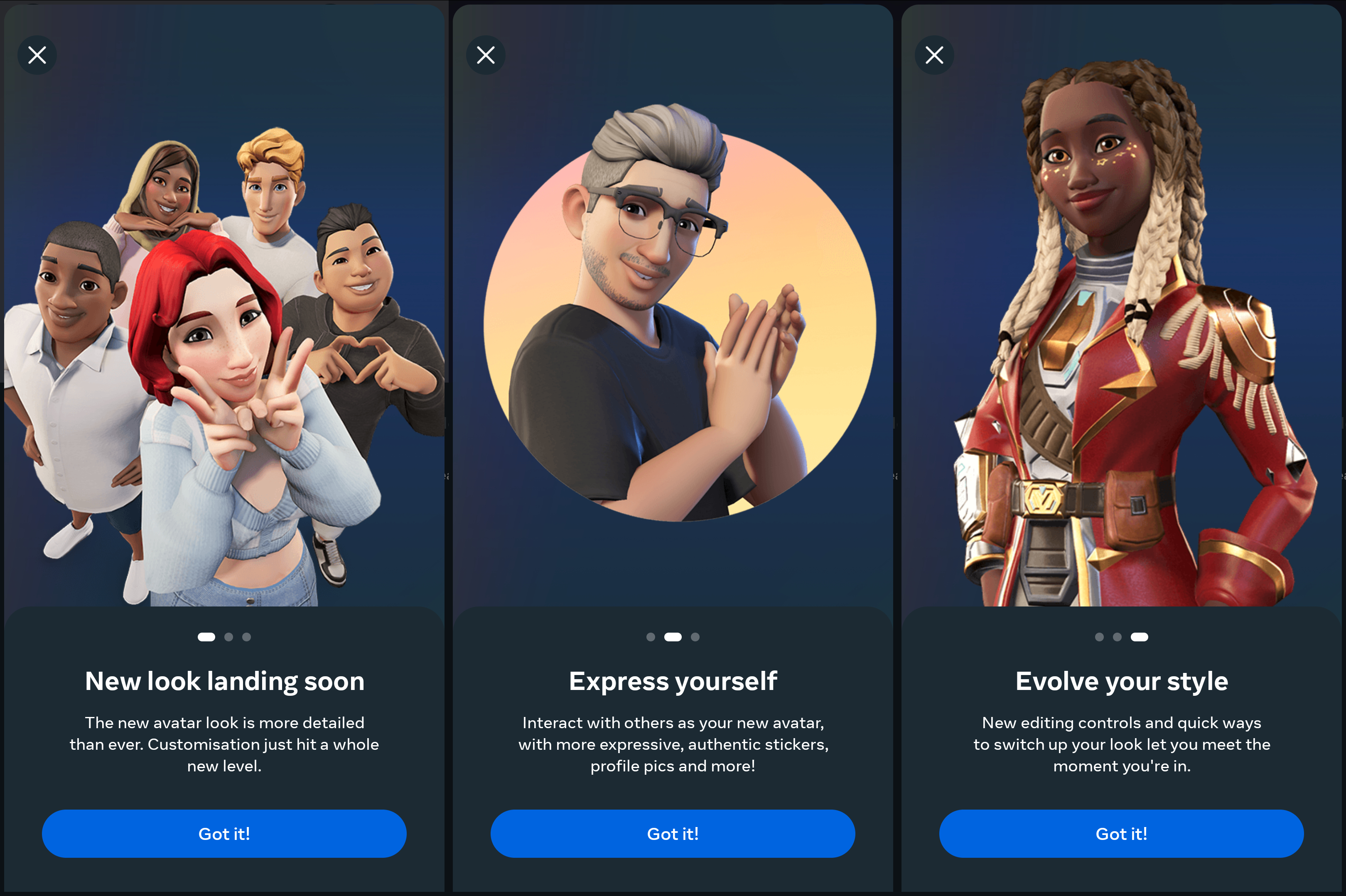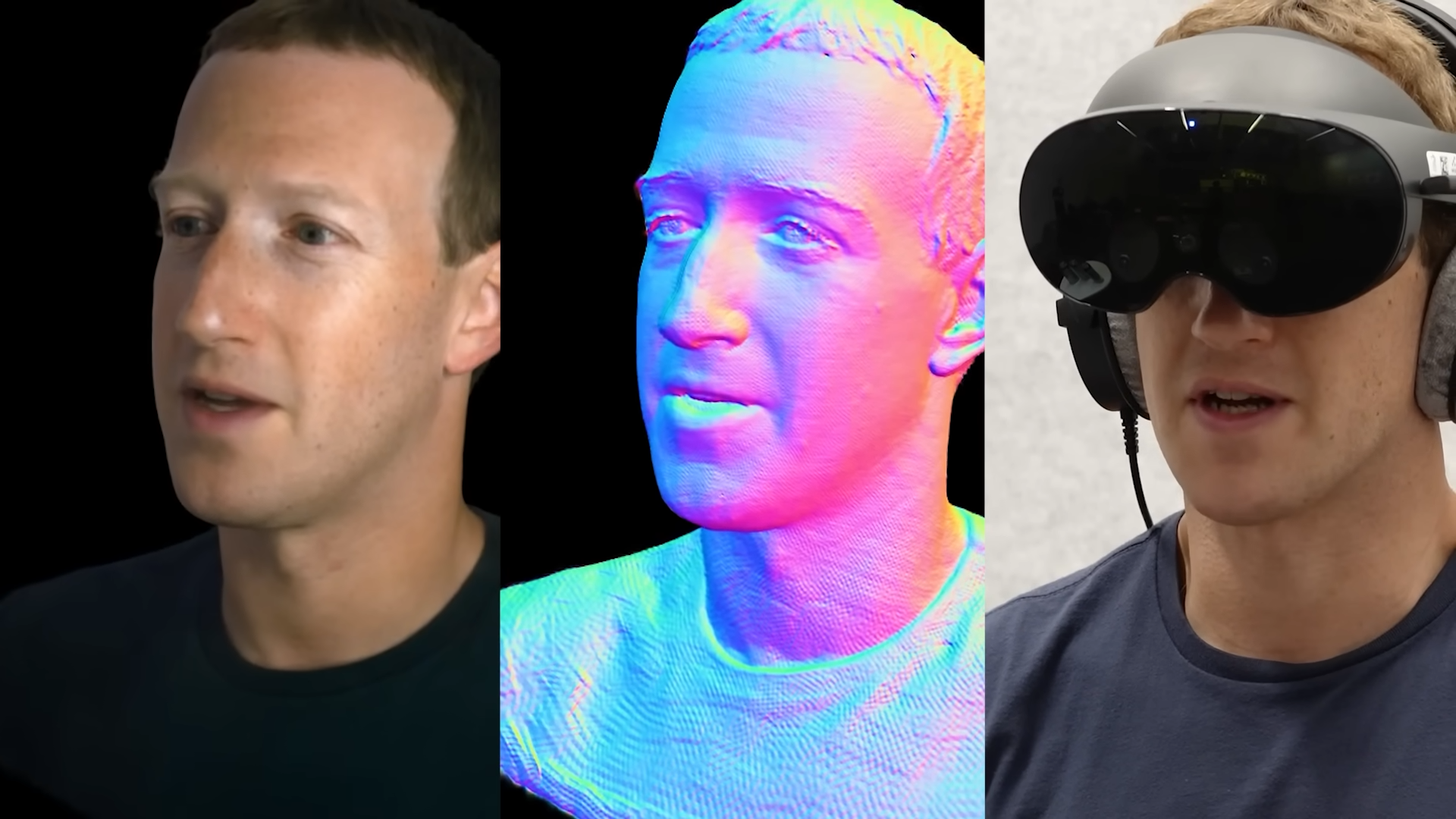Meta teases huge Metaverse avatar overhaul ahead of Connect 2024
Bringing more lifelike avatars to Meta Horizon OS, WhatsApp, Facebook Messenger, and Instagram

Meta is days away from kick-starting its annual Meta Connect event and we're expecting the company to showcase its latest advancements in AI, wearables, and AR/VR.
We expect to see the Meta Quest 3S, a glimpse at the company's future Orion AR glasses (or potentially a third-generation follow-up to its Ray-Ban Meta smart glasses), and a host of Meta AI improvements.
However, we'll also be sure to see Meta offer several announcements surrounding Horizon OS too, including further details about major game releases and new features heading to the platform.
One such reveal could be linked to a freshly teased update for Meta's Metaverse avatars, your virtual representation in VR spaces, and customizable digital doppelganger in stickers for WhatsApp, Instagram, and Facebook Messenger.
Meta Connect 2024 to unveil new Horizon OS avatars?
Those opening the Meta Horizon mobile app and attempting to update their avatar are currently being greeted by a pop-up message highlighting some fairly substantial changes to the platform's avatars happening shortly.
The three-card tease highlights an upgraded appearance for Meta's avatars, offering a more detailed figure with a "whole new level" of customization available. The avatars appear to feature a much more diverse appearance of facial structures, body sizes, and outfits, which would be a great way to add more personality to your digital self throughout the Metaverse.
Another of the cards highlights how avatars will provide a greater range of expressions also, especially when it comes to stickers. Meta's avatar stickers appear in several messaging apps like WhatsApp or Facebook Messenger and allow you to send personalized images featuring your Meta avatar to others to suit various moods or responses.
Sign up to receive The Snapshot, a free special dispatch from Laptop Mag, in your inbox.
The final card reveals that there'll be quick ways to switch up your look, which could allude to being able to save outfits as presets that you can quickly call up depending on the occasion. Swapping in and out of styles on the fly to suit whatever activity you find yourself in across your stay in the Metaverse.
These new avatars are a departure from Meta's current, doll-like, bobblehead personas, and bring in more realistic proportions.
It's not made clear as to when this update to the avatar system will go live, but given the "New look landing soon" title on one of the cards, it's not beyond the question to expect this new feature to be showcased in full during Meta Connect 2024, which takes place Wednesday, September 25.
However, as much of an improvement as this will be, It's just one of many steps Meta hopes to take on their path to creating the most immersive avatars possible for VR/AR use: Codec avatars.
A step closer to Meta's Codec Avatars
From Nintendo's Miis, Apple's Memojis, or the classic Xbox avatars, creating visual representations of yourself to be used in gaming, chats, or social experiences is nothing new and has proven quite popular over the years.
Meta's avatars are your visual representation in a virtual world and one of your primary ways of interacting with others across the Metaverse. However, with the Quest 3's lack of eye or face tracking, these avatars are oftentimes left looking like blank slates unless reacting to user-made hand gestures.
The Meta Quest Pro has both of these tracking capabilities, and it's also where the foundations of Meta's future avatar ambitions are being tested via its super realistic Codec avatars.
Meta has been pretty revealing about its work on Codec avatars, introducing the concept as far back as a 2019 Facebook blog post. However, since then, Codec avatars have come on leaps and bounds, with perhaps the most impressive showcase of this technology being when Meta CEO Mark Zuckerberg took part in the first Metaverse interview using Codec avatars during a September 2023 episode of the Lex Fridman podcast on YouTube.
To Meta, Codec avatars are the future of human interaction in virtual or augmented reality spaces, offering incredibly life-like interactions where every detail of your face and the way it moves is captured and rendered by a hyperrealistic virtual representation of yourself.
Sadly, this tech is still some ways away from reaching wider audiences. According to Zuckerberg, the company needs time to refine its scanning capabilities, which can currently take hours and only be done within a special lab, into something a smartphone app can handle.
Users will also need a headset capable of tracking face and mouth movements, a feature not expected to return to Quest headsets until the Quest 4's release, at least — which, should a leaked Meta AR/VR roadmap hold true, may not happen until 2026.
What else to expect from Meta Connect 2024?
However, while the Meta Quest 4 and Codec avatars are still some years away, you won't have to wait long to catch up with the company's immediate offerings (and some further insight into future goals) as Meta Connect 2024 takes place later this week.
Not only will be seeing the official unveiling of the Meta Quest 3S, a new, affordable mixed-reality headset based on the impressive Meta Quest 3, but we're also set to hear more about upcoming games, apps, Meta AI features, and plenty of talk surrounding the company's smart glasses efforts.
Want to know more about Meta Connect 2024? Catch our dedicated Meta Connect 2024 hub for all the latest news, information, and rumors ahead of Wednesday's Connect keynote.
More from Laptop Mag
- Quest 3S, smart glasses, and AI: Here's what to expect from Meta Connect 2024
- Meta secures vital smart glasses partnership ahead of Connect 2024 — Here's why it matters
- Samsung's mixed-reality smart glasses could bring Google's Project Astra to life
- This Meta Connect reveal could change AR and gaming forever — and it's not a VR headset or smart glasses

Rael Hornby, potentially influenced by far too many LucasArts titles at an early age, once thought he’d grow up to be a mighty pirate. However, after several interventions with close friends and family members, you’re now much more likely to see his name attached to the bylines of tech articles. While not maintaining a double life as an aspiring writer by day and indie game dev by night, you’ll find him sat in a corner somewhere muttering to himself about microtransactions or hunting down promising indie games on Twitter.


